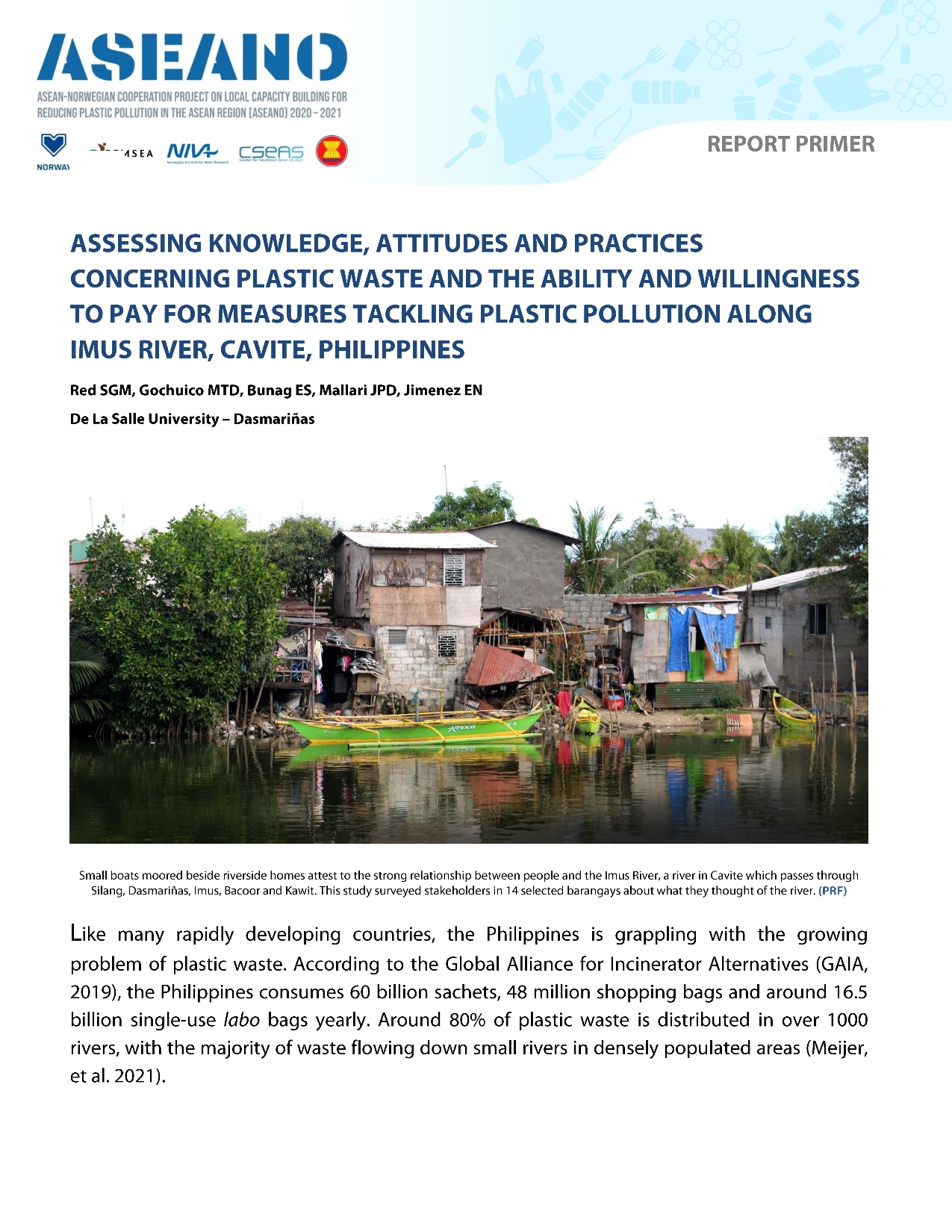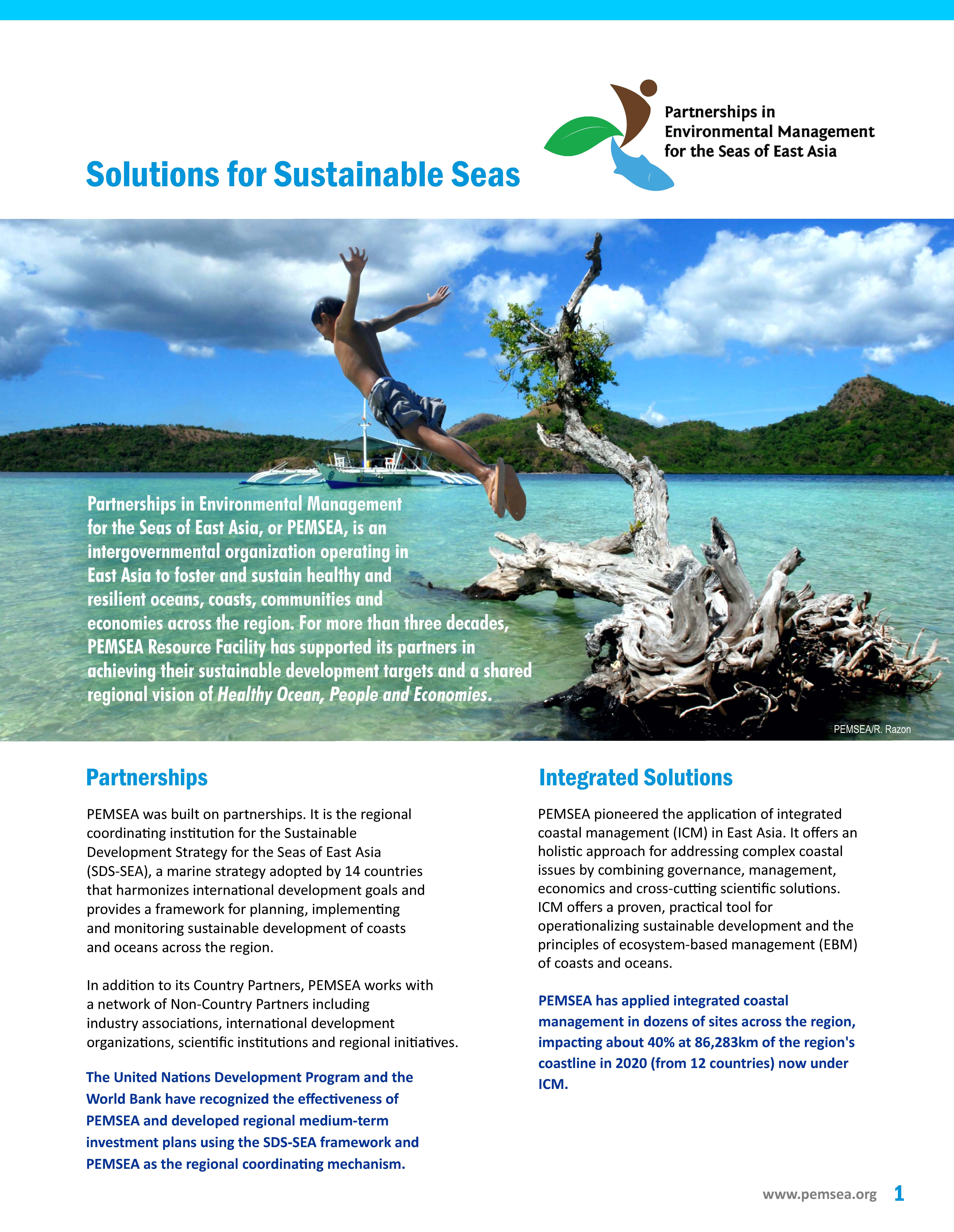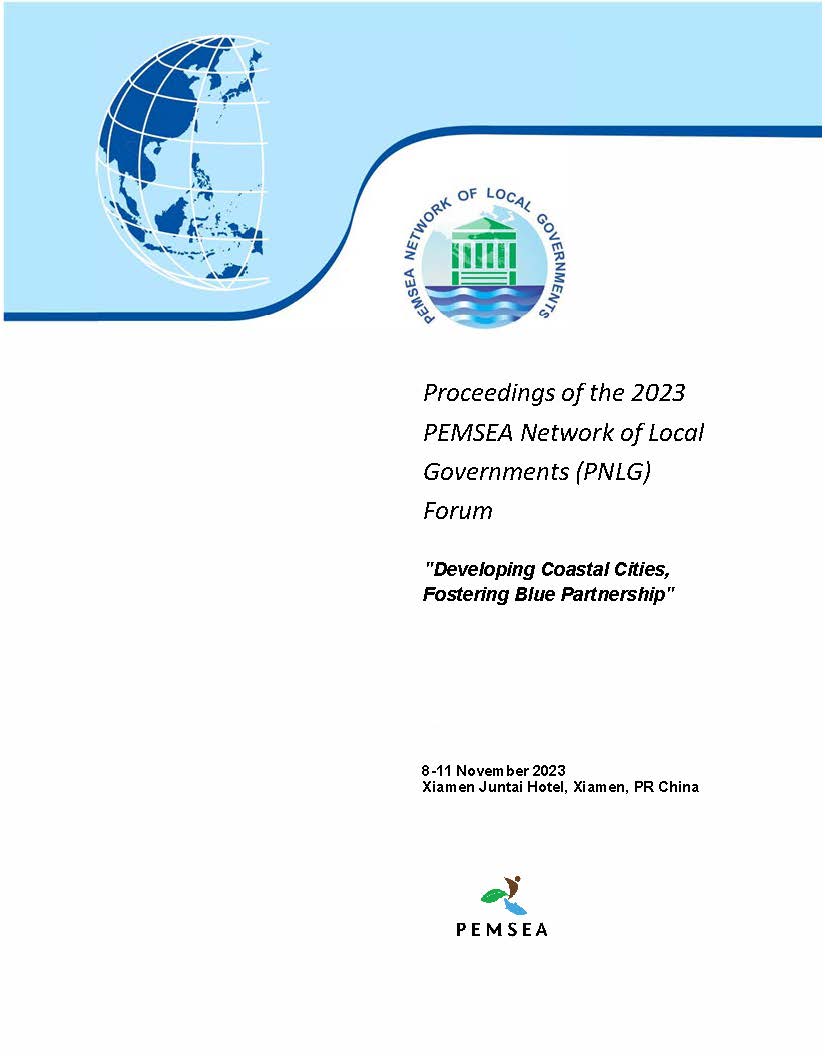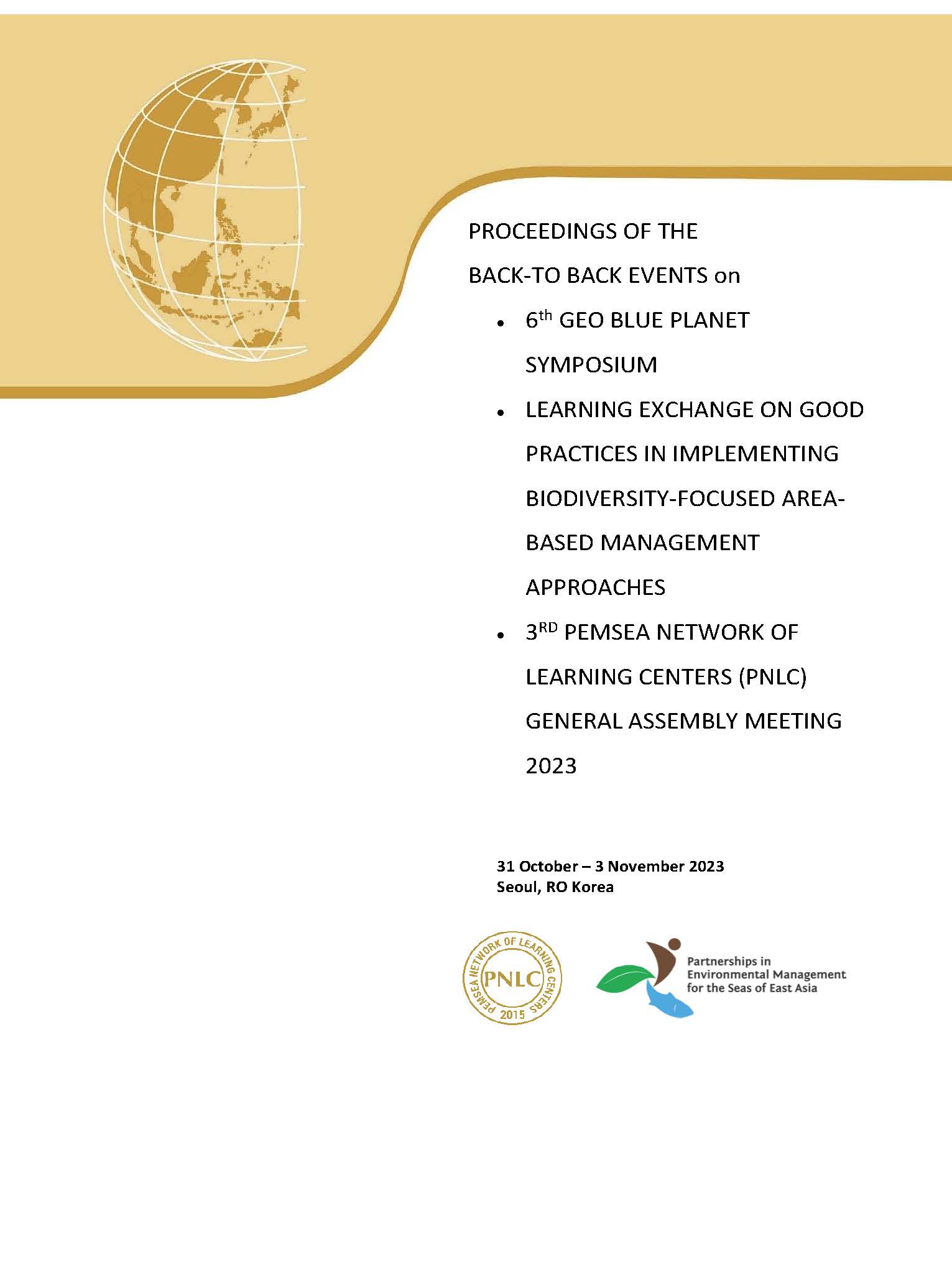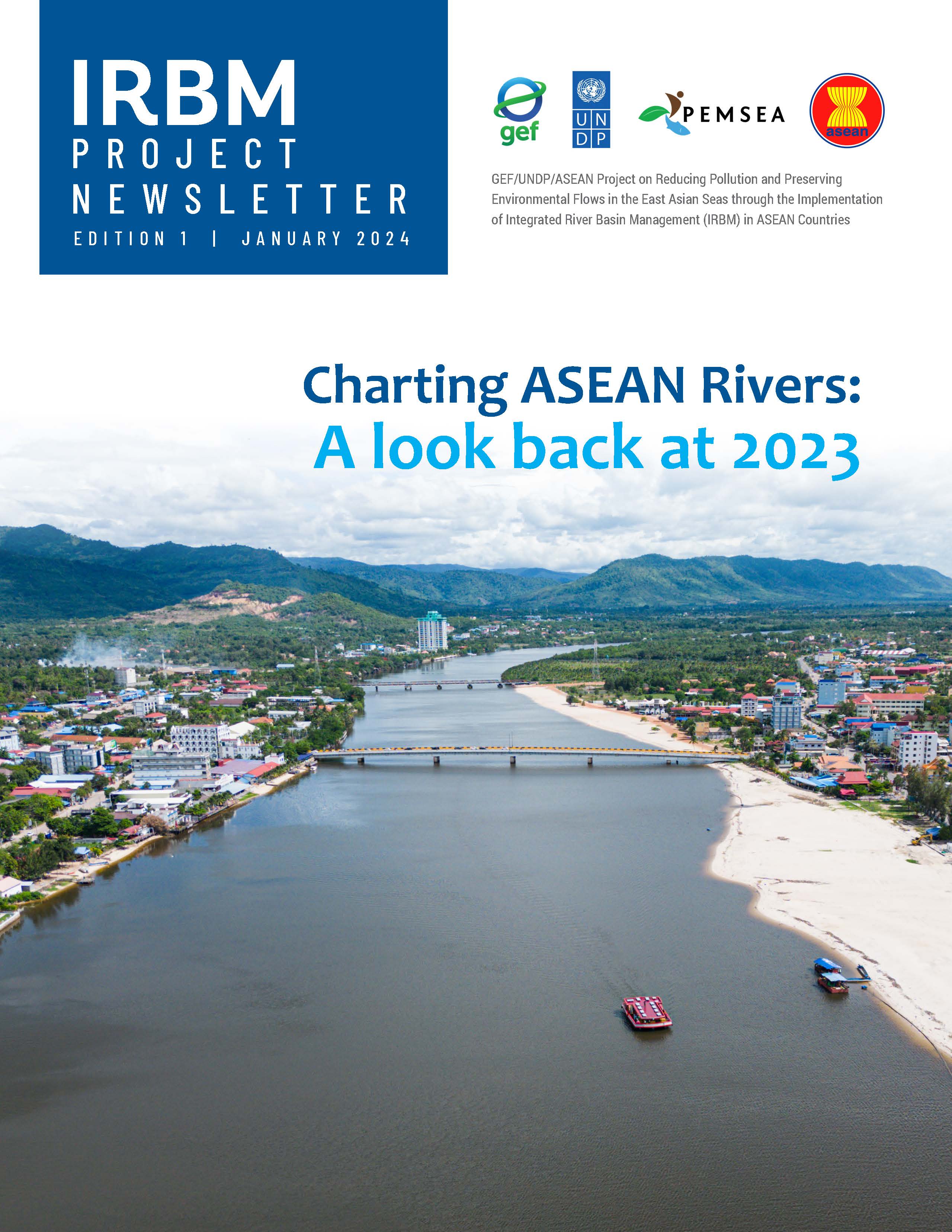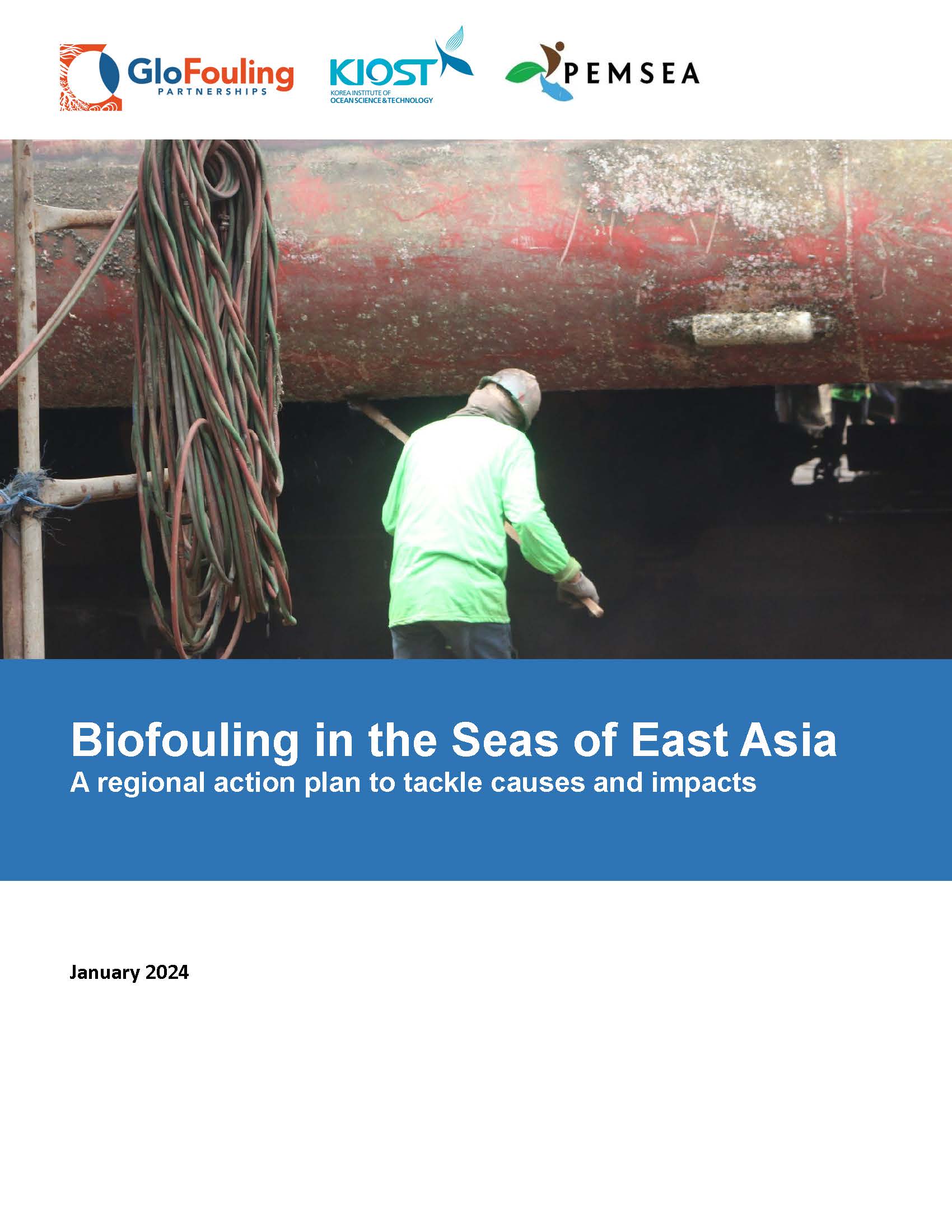
Breadcrumb
ASEANO Primer: Assessing Knowledge, Attitudes and Practices Concerning Plastic Waste Along Imus River
PUBLICATION DATE:
Monday, April 18, 2022
PUBLICATION TYPE:
Reports
STATUS:
Only Available Online
DESCRIPTION:
This study targeted communities along the Imus River, one of six major water sources in the province of Cavite, a rapidly-developing province south of Manila. It determined the stakeholders’ knowledge, attitude and practices related to plastic pollution problems including the impact, management and the communities’ reasons for using plastic products. It assessed the economic value of the river by identifying and analyzing economic benefits like employment, livelihood, plus goods and services derived from the river. Lastly, it determined the ability to pay and willingness to pay of the selected communities dependent on the river for people’s daily needs.
RELATED PUBLICATIONS
-
Proceedings of the 2023 PEMSEA Network of Local Governments Forum (PNLG) "Developing Coastal Cities, Fostering Blue Partnership"
The 2023 Forum of the PNLG with the theme, “Developing Coastal Cities, Fostering Blue Partnership” was hosted by the PNLG and PEMSEA and co-organized by the PNLG Secretariat, PEMSEA Resource Facility (PRF) and Coastal and Ocean Management Institute (COMI) of Xiamen University (XMU). The forum was conducted on 8-11 November 2023 in Xiamen, China. The PNLG Forum was one of the key events of the Xiamen World Ocean Week.
The Forum was participated by over 130 participants from:
- 23 members from seven countries, namely: Cambodia, China, Indonesia, Malaysia, Philippines, RO Korea, and Timor Leste,
- 4 PNLG Associate members, namely the First Institute of Oceanography, Ministry of Natural Resources, China; Coastal and Ocean Management Institute (COMI) and Fujian Institute for Sustainable Oceans (FISO) of Xiamen University (XMU), China, and National Ocean Technology Center (NOTC) of the Ministry of Natural Resources, China;
- resource speakers and other invited experts,
- the PNLG Secretariat, and
- the PRF.
-
Proceedings of PEMSEA Network of Learning Centers (PNLC) back - to - back Events
The document contains the proceedings of three back-to-back activities that were conducted in Seoul, Republic of Korea from 31 October to 3 November 2023.
The activities include:
- The 6th Geo Blue Planet Symposium on Digital Solution for Sustainable Ocean Community on October 31
- PEMSEA Learning Exchange on Good Practices in Implementing Biodiversity Conservation-Focused Ecosystem and Area-based Management Approaches on November 1
- The 3rd PEMSEA Network of Learning Centers (PNLC) General Assembly Meeting on November 2
The activities were organized by the PEMSEA Resource Facility (PRF) with support from RoKorea Ministry of Ocean and Fisheries, the Korea Maritime Institute (KMI), and the Korea Management Corporation (KOEM), and the Korea Blue Carbon Research Center.
Participants include 39 representatives from 17 of the 21 PNLC members, officers, and staff from KMI, KOEM, the Korea Blue Carbon Research Center, and the PEMSEA Resource Facility (PRF).
-
Integrated River Basin Management Project Newsletter - Edition 1
2023 marks the beginning of a breakthrough collaboration among six ASEAN member states (AMS) and development partners in Southeast Asia for the protection and management of select priority river basins that drain into four large marine ecosystems in the Southeast Asian Region, the Bay of Bengal, South China Sea, Gulf of Thailand and Indonesian Sea. This year, the Integrated River Basin Management Project saw the project inception and establishment of the governance mechanism at the regional level, including the establishment of the Regional Project Management Unit at PRF and the approval and adoption of the 2023 workplan and budget. The six AMS proceeded in securing approval of the project in line with their respective government policies and procedures and initiated consultations at national and river basin levels to discuss the project’s implementing arrangements. Regional activities were also initiated including the development of State of River Basin Reporting Guidelines, Gender Equality and Social Inclusion Analysis, capacity development activities, and knowledge management and communication outreach.
-
Biofouling Management in the Seas of East Asia Regional Action Plan
The challenges posed by biofouling require responses at local, national, and regional levels. The link to international shipping is crucially important, especially so in East Asia, which is already the global hotspot for shipping despite continuing advances in its economies. During the regional meeting of the GloFouling Partnerships Project in September 2023, the Regional Action Plan on Biofouling Management was approved as a response to the need.
